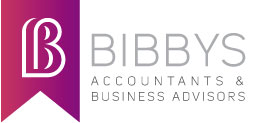It is well recognised that in order for your small business to be successful, you need to be excellent at what you do. Whether you’re a builder, hairdresser, shopkeeper, or solicitor – your customers or clients pay you for the specific services or products you offer. In fact, it is likely that the reason you started out in the first place was down to your skills and expertise in your line of business, and your passion and enthusiasm for what you do.
However not all small business owners recognise that it is equally important to be excellent at marketing what you do. You could be the best hairdresser in the South West, but if potential customers don’t know about you, they can’t buy from you, and your business will fail to grow.
Fortunately, marketing a small business is not complicated. With a little bit of planning and a firm commitment to implementing your marketing activities regularly, you’ll find it’s easy to attract new customers, whilst keeping in touch with existing customers, to ensure the sales roll in.
Here are 6 keys to successfully marketing your small business…
1. What are your marketing objectives?
First you need to ask yourself what you want to achieve with your marketing efforts. Defining your objectives by answering these questions will keep you focused, and give you a much better chance of achieving them.
- How many sales would you like in the next 12 months?
- Will they need to come from mainly new customers, or from encouraging previous customers to spend again?
- How many total spending customers do you need ideally?
- To achieve that, how many do you need on your email/mailing list? How many social media followers?
- What’s working already? What new things could you try?
- Can you learn anything from what your competitors are doing?
2. Who are you targeting?
It’s very useful to form a clear picture in your mind about the type of customer you are aiming to attract to your business.
- Who is your ideal customer? Who is most likely to buy your product or service?
- Gender, age, where they live, socioeconomic status?
- Interests? Hobbies? Preferred newspapers/social media?
- How do they like to be communicated with? Social Media? Email? Direct mail? Traditional advertising? It is best to pick a combination, which we will look at later.
3. What is your message?
The next stage is to decide what your marketing message is, so that it strikes the right chord with your ideal customers.
- Why would they want to buy from you?
- What do they gain from buying your product or service?
- What problems do you solve for them?
- What sets your offering apart from your competitors?
4. Where will you promote your marketing?
It’s important to feature your marketing messages where they will be seen by your ideal customers, to ensure you make the most of the time and money you spend on promoting your marketing messages. Pick the most relevant combination of marketing activities for your customers and business.
- Email newsletter
- Website/SEO content (blog posts, white papers, videos, webinars, podcasts, etc.)
- Social media (Facebook, Twitter, LinkedIn, Pinterest, Instagram, You Tube, etc.)
- Direct mail/Flyers
- Advertising (billboards, press, Facebook Ads, GoogleAds, etc.)
- PR
- Events, exhibitions, networking
- Referrals
5. How will you implement your marketing?
Then it’s time to decide how you will go about implementing your marketing on a regular basis. It is useful to have an annual calendar highlighting key dates and marketing opportunities (e.g. Christmas) as well as a weekly/monthly plan to ensure someone is accountable for regularly and consistently focusing on marketing your business.
- Which marketing activities will you carry out and when?
- How much budget and time will you invest?
- Who will be responsible for making it happen?
- How often will you commit to? Little and often is more effective than feast and famine.
6. The importance of a regular review
The most important step to successfully marketing your business is to regularly review the results generated by your marketing activities against the objectives you originally set.
Reviewing results on a monthly or quarterly basis will give you essential feedback on whether you are on track to reach your goals, and to see what is working and what isn’t. Then you can tweak what you are doing to ensure your future time and money is invested on activities that are most likely to lead you to success.
If you’re a small business owner in need of expert accountancy or business management advice, please get in touch to find out how we can help you.
Bibbys are a firm of friendly Chartered Accountants in Devon, helping individuals, entrepreneurs and small business owners with all their accountancy, tax and business planning requirements.

